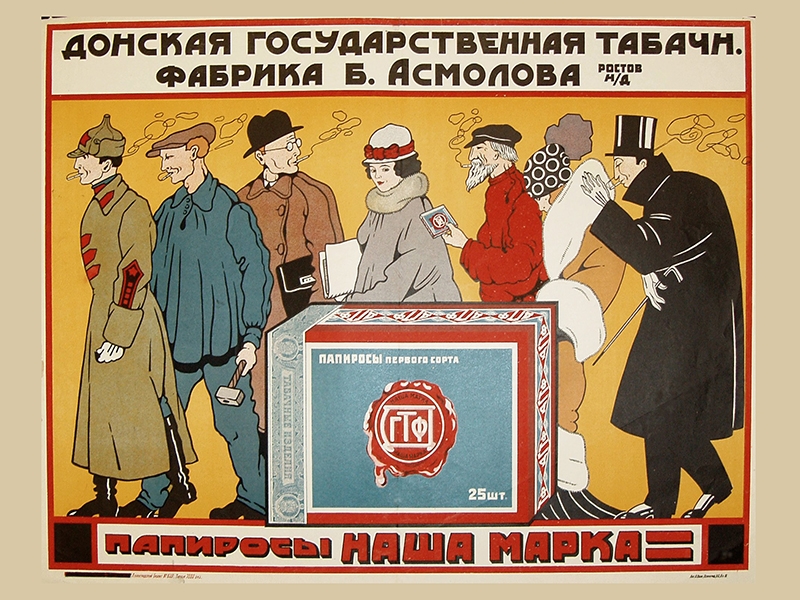Using resources from Russian and Soviet archives, as well as documents obtained as part of the historic Master Settlement against international tobacco giants, U of A historian Tricia Starks argues for new approaches to the global tobacco problem that de-emphasize Western perspectives of addiction.
Starks, professor of history and director of the U of A Humanities Center, released a book on Russian pre-revolutionary tobacco addiction in 2018. This new book follows the story forward into the development of tobacco use in the Soviet Union. A central question of the book is how the Soviets could introduce the first national cessation campaign in 1920, avoid capitalist incentives of marketing and product manipulation, yet suffer one of the worst smoking problems in the world by the 21st century.
With the lavishly illustrated Cigarettes and Soviets: Smoking in the USSR, Starks shows how tobacco use in the USSR followed a unique path. Soviet smokers encountered a tobacco landscape distinctive in its poor product quality and quantity. Without advertising, adulterated tobacco, cheap supply or easy availability, Soviets still smoked in alarming numbers. Perhaps even more astonishing, Soviet smokers continued even after the state in the 1920s began the first national cessation plan and started funding cessation clinics.
 A poster for Soviet Pachka (Ammo) smokes, 1927. Courtesy of the Russian State Library. |
Smoking remained a massive problem for Russian health. In 2020, 50.9% of Russian men and 14.3% of women used tobacco, mostly in cigarettes. American rates currently hover around 15% and 13%, respectively. Given that smoking kills half or more of its users with cancer or other complications, this is a question of national and international importance with implications for the declining Russian population and long-term stability of the state.
Research for the project was funded or supported by the National Library of Medicine, National Institutes of Health, the Kennan Institute for Advanced Russian Studies at the Woodrow Wilson Center, the University of Illinois's Slavic Research Lab, the University of California San Francisco's Industry Documents Archive and the U of A. Published by Northern Illinois Press, an imprint of Cornell University Press, the book is available for purchase through Cornell Press.
Topics
Contacts
Trish Starks, professor
Department of History
479-575-7592,
Andra Parrish Liwag, senior director of communications
Fulbright College of Arts and Sciences
479-575-4393,
